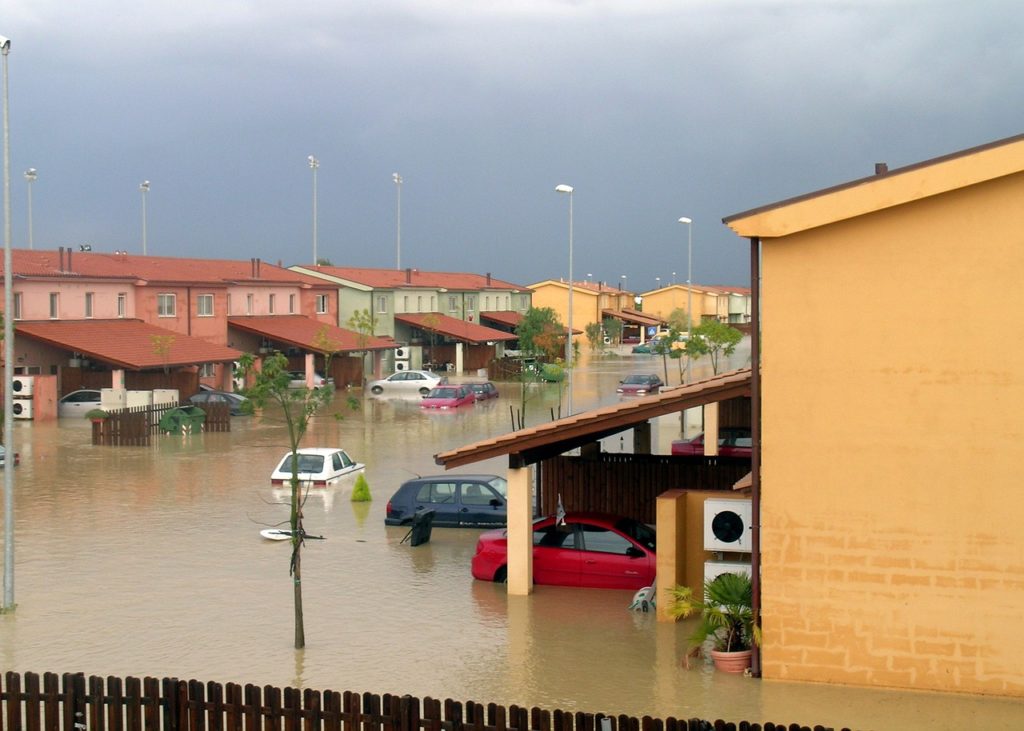“Where it rains, it floods” is an old saying. Buyers shouldn’t ask, “Will my house flood?” What’s the flood risk?
Flood danger is obviously increased if you buy a home by the coast or near significant bodies of water (rivers and lakes), despite the fact that your ideal home is not on the beach, it could be located in a high-risk flood zone.
Knowing how susceptible your home is to flooding is vital since it could result in increased insurance rates, assessments, and more unforeseen repairs if a storm hits.
There is a well-known proverb that states, “Where it can rain, it can flood.” Therefore, prospective buyers shouldn’t be asking, “Is there a risk that my house will flood?” You ought to rephrase the question as “What is the risk of flooding?” instead.
If you buy a home near the coast or in close proximity to significant bodies of water (rivers and lakes), the risk of flooding is obviously going to be higher. However, even if the home of your dreams is not situated on the water, there is still a chance that it is in an area that is prone to flooding.
It is essential to have a good understanding of how susceptible your property is to flooding because, in the event of a storm, this could result in increased insurance rates, assessments, and more unexpected repairs.
Here is some information regarding flood zones that you should familiarize yourself with before purchasing a home.
What Exactly Is a Floodplain?
All regions are vulnerable to floods, but some are more vulnerable than others. Depending on the amount of hazard to your property—low-, moderate-, or high-risk—you may face higher insurance costs as well as potential house damage.
Homebuyers can see flood maps in their neighborhoods by visiting the Federal Emergency Management Agency’s (FEMA) website. The maps calculate risk based on prior disasters and flood trends.
There is no such thing as a “no-risk zone,” according to FEMA, but buyers can use flood maps to evaluate how vulnerable their home is to floods. Areas with a 1% likelihood of flooding or more are categorized as high-risk. This 1% likelihood storm is sometimes referred to as a base flood or a 100-year flood. These places have a one-in-four chance of flooding during the course of a 30-year mortgage.
FEMA has classified flood zones into two categories: Special Flood Hazard Areas (SFHAs) and Non-Special Flood Hazard Areas (NFHAs) (NSFHA).

Certain properties require flood insurance
If you are utilizing a government-backed mortgage (including Federal Housing Administration (FHA), Veterans Affairs (VA), and the United States Department of Agriculture (USDA) loans) to purchase a home in a high-risk flood zone, you are required to purchase flood insurance.
Even though it is not mandatory by the federal government, lenders may still require insurance coverage for buyers who acquire property from outside high-risk areas.
There are two varieties of flood insurance
First off, it’s crucial to remember that flooding is not covered by regular homeowners’ and renter’s insurance plans. You will need to purchase separate flood insurance.
The National Flood Insurance Program (NFIP), which is backed by the government, and private flood insurance are the two main types of flood insurance available.
Does Flood Insurance Make Sense?
Even though you are not required to get flood insurance, you should weigh the risks before deciding to forego coverage.
Thirty percent of all flood damage claims originate from low- to moderate-risk areas. According to FEMA, even one inch of water can do substantial damage to your property.
Depending on your location and what your insurance covers, average monthly premiums for flood insurance can begin at $80. Depending on whether you reside in a region susceptible to flooding and water damage, additional annual insurance premiums may be required.
As with the majority of insurance plans, selecting a greater deductible will result in lower premiums. Furthermore, if you file a claim, you will be responsible for the difference in damages.
Questions? We’re not insurance specialists, but we’ll help you get all your questions answered.

